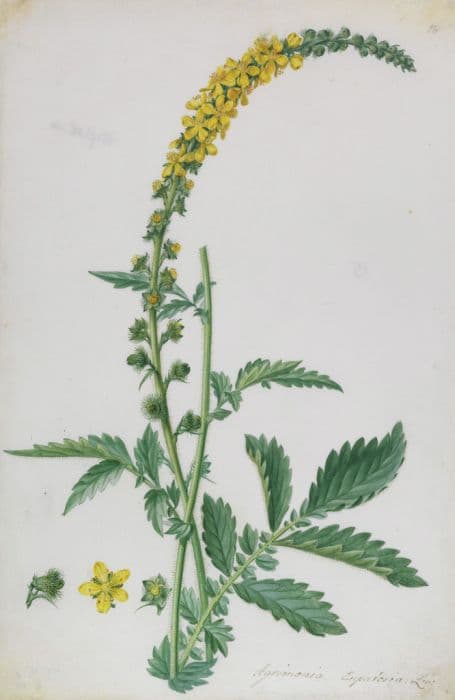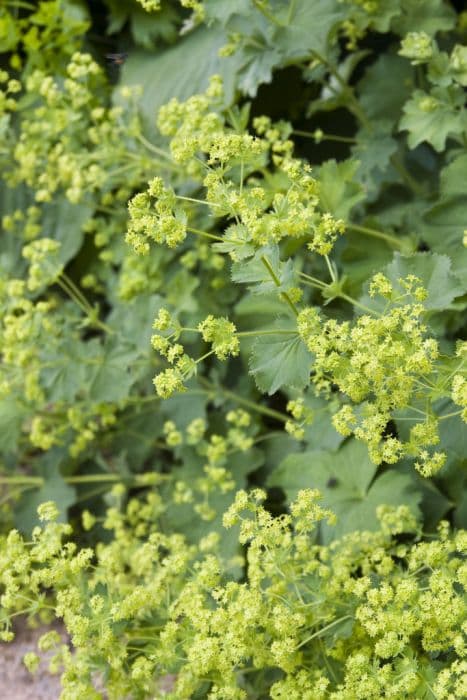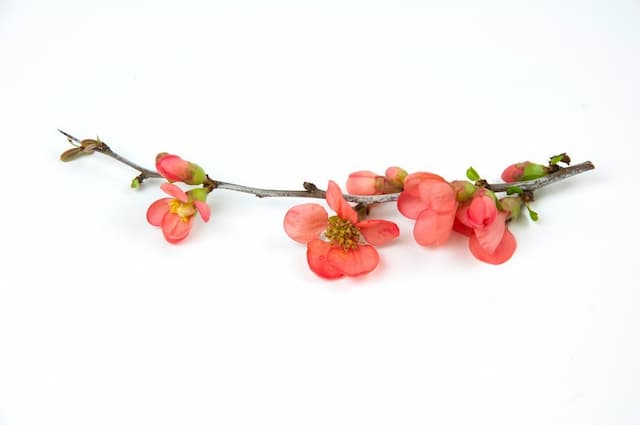Reine des Violettes Rose Rosa 'Reine des Violettes' (HP)

ABOUT
The plant known as 'Reine des Violettes' is a type of rose that boasts a particularly striking appearance. This variety is admired for its beautiful blooms which showcase a blend of colors—typically a deep violet hue with undertones that may suggest a mauve or purple cast. The flowers tend to be very full and dense with petals, offering a classic old-fashioned form reminiscent of roses from historical gardens. These blooms are not solitary; they often grow in clusters, creating a stunning visual impact with their collective display. The petals have a velvety texture, which further enhances the luxurious feel of the rose. As for the fragrance, 'Reine des Violettes' carries a strong and alluring scent, a characteristic trait that rose enthusiasts often seek. The leaves of this rose are a lush green, providing a rich backdrop that accentuates the vibrancy of the blooms. The foliage tends to have a matte finish, which contrasts with the shiny surface commonly found on the leaves of other rose varieties. Though not part of the detailed description, it's noteworthy that 'Reine des Violettes' is endowed with a graceful and robust growth habit that supports its sumptuous blooms, resulting in a plant striking in both beauty and poise. Its appeal lies not only in the individual size of its flowers but also in the overall contribution of these blooms to the aesthetic of gardens where it is cultivated.
About this plant
 Names
NamesFamily
Rosaceae.
Synonyms
Queen of the Violets, Reine des Violettes Hybrid Perpetual, Reine des Violettes Rose.
Common names
Rosa 'Reine des Violettes' (HP).
 Toxicity
ToxicityTo humans
The common name for Rosa 'Reine des Violettes' (HP) is the Hybrid Perpetual Rose. This plant is not considered toxic to humans. Roses are not known to have toxic effects if ingested and do not cause symptoms of poisoning. However, the thorns on rose bushes can cause physical injury if not handled carefully.
To pets
The common name for Rosa 'Reine des Violettes' (HP) is the Hybrid Perpetual Rose. This rose is generally considered non-toxic to pets. However, ingesting large quantities of rose petals or leaves may potentially lead to gastrointestinal upset, such as vomiting or diarrhea, due to the plant material's irritation. More concerningly, the thorns may cause trauma if eaten or handled by pets.
 Characteristics
CharacteristicsLife cycle
Perennials
Foliage type
Deciduous
Color of leaves
Green
Flower color
Violet
Height
4-6 feet (1.2-1.8 meters)
Spread
3-4 feet (0.9-1.2 meters)
Plant type
Shrub
Hardiness zones
5-9
Native area
Cultivar
Benefits
 General Benefits
General Benefits- Aesthetic Appeal: This variety of rose is prized for its beautiful purple-hued flowers, adding a unique splash of color and elegance to gardens and landscapes.
- Fragrance: The flowers emit a strong, pleasant fragrance, which can enhance the sensory experience of a garden or outdoor area.
- Pollinator Attraction: Roses attract bees and other pollinators, which are vital for the pollination of many plants and the overall health of ecosystems.
- Versatility in Landscaping: The Queen of the Violets rose can be used in various landscaping designs, including borders, hedge plantings, and as a stand-alone specimen.
- Cultural Significance: Roses have a long history of symbolism and are often associated with love and beauty, thus adding not just a natural but also a cultural element to gardens.
- Emotional Wellbeing: The act of gardening itself, including the care of roses, can be a stress-relieving hobby that contributes to emotional and mental wellbeing.
- Habitat for Wildlife: Rose bushes can provide shelter and habitat for various small wildlife, including birds and beneficial insects.
- Seasonal Interest: With proper care, Rosa 'Reine des Violettes' can provide seasonal interest with its blooms in the warmer months and its structure in the winter.
 Medical Properties
Medical PropertiesThis plant is not used for medical purposes.
 Air-purifying Qualities
Air-purifying QualitiesThis plant is not specifically known for air purifying qualities.
 Other Uses
Other Uses- Ink Production: The petals of the Reine des Violettes rose can be used to create a natural dye for inks, providing a unique violet hue.
- Floral Art: The whole flowers or petals can be used in dried floral arrangements, preserving their color and form for artistic projects.
- Culinary Decoration: Fresh petals can adorn cakes and pastries, adding an edible, ornate touch to desserts.
- Herbal Sachets: Dried petals can be placed in cloth sachets to create natural fresheners for drawers and closets.
- Plant Dye for Fabrics: The petals can be used to dye fabrics, giving them a soft violet tint.
- Flower Crafts: Petals can be incorporated into homemade paper, lending texture and color to the final product.
- Natural Confetti: Dried petals can serve as biodegradable confetti for weddings and other celebrations.
- Potpourri: Combined with other dried flowers and spices, the petals can be used to create potpourri with a sweet, mild fragrance.
- Rose Water: Petals can be simmered in water to create rose water for use in homemade cosmetics or culinary recipes.
- Bookmarks: Pressed flowers can be laminated or placed within the pages of a book to create decorative bookmarks.
Interesting Facts
 Feng Shui
Feng ShuiThe hybrid perpetual rose is not used in Feng Shui practice.
 Zodiac Sign Compitability
Zodiac Sign CompitabilityThe hybrid perpetual rose is not used in astrology practice.
 Plant Symbolism
Plant Symbolism- Love - As a rose, 'Reine des Violettes' widely represents love and affection, as roses are traditionally associated with the expression of deep and passionate sentiments.
- Mystery - The 'Reine des Violettes' rose, with its unique violet hue, can symbolize the mystery and enchantment that often surrounds the unknown aspects of love and admiration.
- Royalty - The name 'Queen of the Violets' directly suggests connotations of royalty and regal elegance, which is characteristic of many purple-flowered plants.
- Devotion - Roses are often associated with a steadfast devotion and lasting commitment, making them a common gift for significant others as a gesture of unwavering loyalty.
- Beauty - With its lush and intricate flowers, 'Reine des Violettes' epitomizes the universal symbolism of beauty that roses carry.
- Splendor - The luxurious appearance of this rose cultivar conveys ideas of splendor and magnificence, enhancing its association with high quality and admiration.
 Water
WaterFor the Rosa 'Reine des Violettes' or more commonly known as the Hybrid Perpetual Rose, it is important to maintain even soil moisture. Water this rose deeply once a week, providing at least 1 to 2 gallons of water per plant, ensuring the water penetrates the soil to a depth of about 18 inches. In hot or dry weather, you may need to water twice a week. Avoid overhead watering to prevent leaf diseases; instead, use a soaker hose or water at the base of the plant early in the day. Reduce watering in the fall to prepare the plant for dormancy.
 Light
LightThe Hybrid Perpetual Rose thrives in a location that receives full sun. Ideally, the plant should get at least six hours of direct sunlight daily. Morning sunlight is especially beneficial for drying dew from the leaves, which helps prevent fungal diseases. Avoid shady areas to ensure healthy growth and abundant flowering.
 Temperature
TemperatureThe ideal growing temperature for the Hybrid Perpetual Rose is between 65°F and 75°F. It is a hardy plant that can survive winter temperatures down to 20°F but may need some protection in colder climates. During the summer, the rose can tolerate temperatures up to 90°F, though prolonged heat may stress the plant.
 Pruning
PruningPruning the Hybrid Perpetual Rose is essential for maintaining plant health, encouraging new growth, and improving air circulation. Prune in late winter or early spring, before new growth starts. Remove dead or diseased wood, thin out crowded areas, and cut back about one-third of the previous year's growth. Always use clean, sharp tools, and make angled cuts above outward-facing buds. Deadheading spent blooms throughout the growing season encourages further flowering.
 Cleaning
CleaningAs needed
 Soil
SoilThe Hybrid Perpetual Rose, commonly known as Rosa 'Reine des Violettes', thrives best in well-draining loamy soil with a pH of 6.5 to 7.0. A good soil mix for this rose might include equal parts of garden soil, compost, and coarse sand to ensure proper drainage and fertility.
 Repotting
RepottingRosa 'Reine des Violettes', or Hybrid Perpetual Rose, doesn't typically require repotting as it is generally grown outdoors. If grown in large containers, repotting might be done every 2-4 years to refresh the soil.
 Humidity & Misting
Humidity & MistingHybrid Perpetual Roses prefer moderate humidity levels, as high humidity can encourage disease. Ensure good air circulation to help maintain the appropriate humidity around the plant.
 Suitable locations
Suitable locationsIndoor
Ensure bright light, prune well, and keep soil well-drained.
Outdoor
Plant in full sun, fertile soil, water deeply, and mulch.
Hardiness zone
5-9 USDA
 Life cycle
Life cycleThe Reine des Violettes, a variety of hybrid perpetual rose, begins its life cycle when a seed germinates or more commonly, when a cutting develops roots. After establishing a root system, it progresses into a vegetative stage characterized by leaf and stem growth. As the plant matures, it enters the flowering stage, typically in late spring or summer, producing fragrant, deep violet to mauve blossoms. After pollination, flowers develop into hips (seed pods) in the late summer or fall, completing the reproductive cycle. During the colder months, the Reine des Violettes enters a period of dormancy, conserving energy and preparing for the next growing season. This cycle repeats annually, with the plant potentially living and flowering for many years with proper care.
 Propogation
PropogationPropogation time
Spring-Early Summer
The most popular method for propagating the Hybrid Perpetual Rose 'Reine des Violettes' is by softwood cuttings. This technique is generally performed in late spring to early summer when the plant’s growth is tender and pliable. To propagate by cuttings, a 4 to 6-inch (10 to 15 cm) stem section is cut from a healthy rose bush, ideally with at least three sets of leaves. The bottom set of leaves is removed, and the cut end can be dipped in rooting hormone to encourage root growth. The cutting is then placed in a well-draining soil mix, ensuring at least two sets of leaf nodes are beneath the soil surface. To maintain humidity, a plastic bag or cover can be gently placed over the cutting, making sure not to touch the leaves. The cutting requires consistent moisture and should be kept in a warm area with indirect sunlight until roots have established, which typically takes a few weeks to months.









